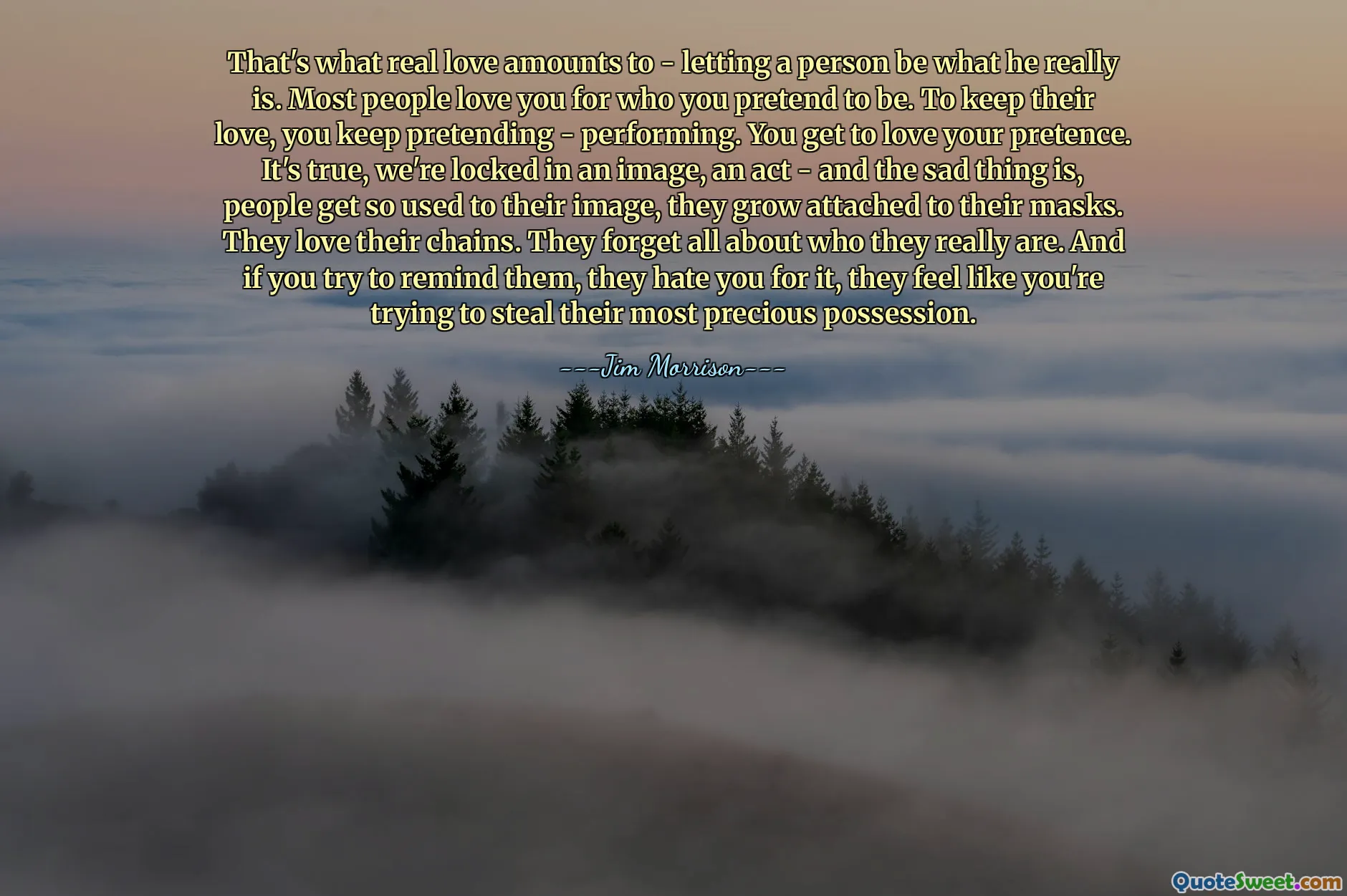
That's what real love amounts to - letting a person be what he really is. Most people love you for who you pretend to be. To keep their love, you keep pretending - performing. You get to love your pretence. It's true, we're locked in an image, an act - and the sad thing is, people get so used to their image, they grow attached to their masks. They love their chains. They forget all about who they really are. And if you try to remind them, they hate you for it, they feel like you're trying to steal their most precious possession.
This quote by Jim Morrison delves into the complex nature of love and identity. It challenges the superficial understanding that love is based on genuine connection, suggesting instead that many people are enamored with a projected image or façade rather than authenticity. The metaphor of masks and chains highlights how individuals often cling to their constructed identities, finding comfort and security in the roles they play, even if those roles constrain them. This reliance on pretence creates a paradox: people love their false selves so much that the suggestion of returning to their true nature causes defensiveness or even hostility. Morrison raises profound questions about self-awareness and the importance of honesty in relationships. Embracing authenticity involves vulnerability, which many find frightening, hence the resistance to being truly seen. The quote encourages reflection on whether real love requires acceptance of a person’s imperfections and true self or is merely a validation of illusions that people uphold.
In a broader sense, it urges individuals to question the societal norms that promote superficial images and the dangers of losing oneself chasing external validation. This phenomenon isn't limited to personal relationships but extends to cultural and social identities, pushing us to value sincerity and authenticity more deeply. Recognizing the masks we wear, and understanding their roots and impacts, can be a pivotal step toward genuine connection and self-liberation. Morrison’s perspective is a reminder that authentic love and self-awareness are intertwined, and that true freedom lies in embracing our true selves beyond the façades we construct for others.
Ultimately, his words serve as a call to authentic living—fostering love that acknowledges and accepts the raw, unfiltered human essence behind the masks we wear.











